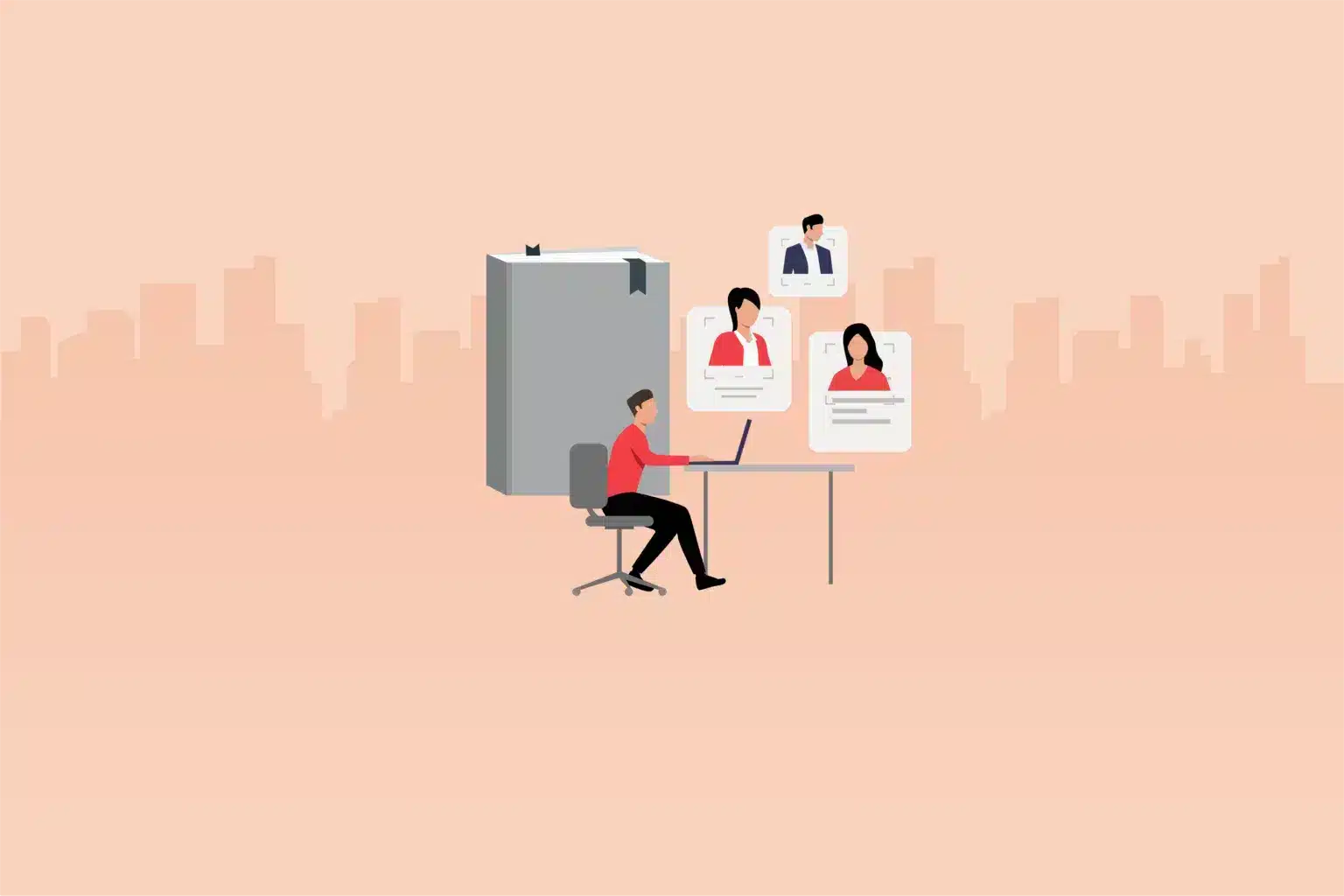Recruiters and employers face numerous challenges when conducting online assessments to evaluate potential candidates for job openings. One of the most significant challenges is ensuring the integrity of the assessment process. Cheating in online assessments can distort results, potentially leading to the hiring of unqualified candidates. Fortunately, advancements in artificial intelligence (AI) have opened up new avenues for preventing cheating during online assessments.
According to a recent survey by Educause Review, online assessments have witnessed a 34% increase in cheating incidents in the last year, underlining the urgency of leveraging AI-based anti-cheating features to maintain the integrity of evaluations.
In this blog, we will explore the importance of AI-based cheating prevention and introduce our talent assessment tool, which incorporates cutting-edge anti-cheating features.
The growing challenge of cheating in online assessments
Online assessments have emerged as a ubiquitous means of evaluating job candidates, driven by their convenience, flexibility, and cost-effectiveness. These assessments offer recruiters and employers the ability to efficiently assess the skills and qualifications of candidates while minimizing logistical challenges. However, the widespread adoption of online assessments has brought with it a growing and pressing challenge: cheating.
Online assessments, though highly practical, are susceptible to various cheating techniques that can compromise the fairness and validity of the evaluation process. Among the most common cheating methods are plagiarism, impersonation, and content sharing.
Plagiarism involves candidates copying or presenting someone else’s work or answers as their own, which not only misrepresents their abilities but also defeats the purpose of the assessment, which is to gauge their individual skills and knowledge.
Impersonation occurs when someone else takes the test on behalf of the candidate, leading to the fraudulent acquisition of a job opportunity. This deceptive tactic not only undermines the integrity of the assessment but also hinders the hiring of genuinely qualified candidates.
Content sharing involves candidates collaborating with others, sharing answers, or obtaining unauthorized assistance during the assessment, which distorts the evaluation results and potentially leads to the selection of ill-suited individuals.
The prevalence of cheating in online assessments necessitates the implementation of robust prevention measures to ensure that the evaluation process remains fair and reliable. These measures often include the use of advanced technologies such as AI-driven proctoring, plagiarism detection software, secure online testing environments, and stringent identity verification processes. The goal is to maintain the integrity of online assessments, allowing recruiters to make informed and trustworthy hiring decisions.
The role of AI in cheating prevention
AI has proven to be a game-changer in cheating prevention. Its ability to analyze, monitor, and adapt in real-time allows recruiters to maintain the integrity of online assessments. Here are some key ways AI can help in cheating prevention:
Proctoring with webcam snapshots
In the realm of online assessments, proctoring with webcam snapshots represents a crucial tool in the battle against cheating. Artificial Intelligence (AI) plays a pivotal role in this technology by continuously monitoring candidates through their webcam, capturing snapshots at random intervals throughout the assessment. The primary objectives of this method are to ensure candidates remain focused on the task at hand and to prevent impersonation.
By periodically taking snapshots of the candidate, AI technology can verify their identity and maintain the integrity of the assessment process. The random nature of these snapshots makes it difficult for candidates to predict when they will be monitored, reducing the temptation to engage in cheating behaviors. Moreover, this feature is a powerful deterrent against impersonation, as it ensures that the person taking the test matches the identity of the registered candidate.
Proctoring with webcam snapshots leverages AI to create a secure and trustworthy online assessment environment, upholding the credibility of the evaluation process while discouraging cheating.
Session recording
Session recording is a game-changing feature in online assessments, enabled by AI technology. It involves recording the candidate’s screen during the assessment, creating a comprehensive visual record of their actions. This function is a robust anti-cheating measure designed to reduce the chances of unauthorized assistance during the assessment.
By capturing a real-time video of the candidate’s screen, session recording provides proctors and employers with an invaluable tool to monitor the candidate’s actions throughout the assessment. Any deviations or suspicious activities can be easily identified, promoting fair and unbiased evaluation. This not only serves to prevent cheating but also ensures that candidates are genuinely demonstrating their skills and knowledge, free from external influence.
Session recording, driven by AI, enhances the security and authenticity of online assessments. It offers a comprehensive view of candidate actions, discourages cheating, and safeguards the integrity of the evaluation process.
Location access and IP address tracking
Leveraging AI, location access, and IP address tracking have become vital components of online assessment security. These features help ensure that candidates take the test in an authorized setting and that the test environment remains secure.
Location access relies on GPS data to verify the physical location of the candidate during the assessment. By comparing the candidate’s location to the authorized testing location, AI can confirm that the test is being conducted under the agreed-upon conditions, deterring cheating that may occur in unauthorized or unsupervised environments.
IP address tracking is another essential measure, as it monitors the candidate’s internet connection. This technology helps verify the candidate’s identity and origin while ensuring that they are not using proxy servers or engaging in any deceptive behavior that may compromise the assessment’s integrity.
Location access and IP address tracking, backed by AI, provide recruiters and employers with the peace of mind that online assessments are conducted under secure conditions, minimizing the potential for cheating and preserving the validity of the evaluation process.
Copy-paste and screen switching disabled
In the realm of online assessments, preventing cheating is paramount, and AI technology plays a crucial role in achieving this goal. One effective strategy is to disable the copy-paste function and screen switching capabilities during the assessment.
AI can actively detect and prevent candidates from copying and pasting content from external sources, such as websites or documents, into the assessment. This restriction not only discourages plagiarism but also ensures that candidates are required to rely on their own knowledge and understanding, promoting a fair evaluation process.
Furthermore, AI can inhibit screen switching, which involves candidates toggling between different applications or windows. This measure is essential for maintaining the sanctity of the assessment environment, as switching screens may enable candidates to access unauthorized resources or collaborate with others. Disabling this capability ensures that candidates remain within the assessment platform, reducing the potential for cheating.
The disabling of copy-paste and screen switching, with the assistance of AI, is a proactive strategy to enhance the integrity of online assessments, creating a level playing field for all candidates and fostering trust in the evaluation process.
Randomized question
Online assessments benefit greatly from the implementation of AI-driven features, one of which is the generation of randomized sets of questions. This innovation ensures that each candidate receives a unique assessment, making it challenging for candidates to share answers or collaborate during the test.
AI can draw questions from a predefined pool and arrange them in a random order for each candidate. This means that no two candidates will receive the same set of questions, mitigating the risk of answer sharing and promoting a fair and unbiased assessment. It also reinforces the authenticity of the candidate’s responses, as they cannot predict the questions in advance or prepare answers based on prior knowledge.
The beauty of randomized questions lies in their ability to uphold the integrity of the assessment process while allowing employers to gauge a candidate’s skills and knowledge accurately. It discourages cheating and ensures that candidates are evaluated solely on their individual merit, contributing to the credibility of the hiring process.
Randomized questions, powered by AI, are a valuable tool for maintaining the fairness and security of online assessments, resulting in more reliable hiring decisions and a higher level of trust in the evaluation process.
Conclusion
Cheating in online assessments poses a significant challenge to recruiters and employers. The use of AI-based cheating prevention measures can help maintain the integrity of the assessment process, ensuring that candidates are evaluated fairly and accurately. Our talent assessment tool with advanced anti-cheating features provides a comprehensive solution to this issue, making it an invaluable asset for recruiters seeking to identify the best-fit candidates for their organizations. Leveraging AI for cheating prevention in online assessments not only streamlines the recruitment process but also contributes to the trust and confidence employers can have in their hiring decisions.
Testlify offers a range of assessments and challenges that allow you to gauge candidates’ knowledge, problem-solving skills, and creativity in real-world scenarios. With our extensive test library, you can objectively evaluate candidates’ abilities, ensuring you shortlist the most talented individuals efficiently. Ready to unlock the potential of your hiring process with our talent assessment tool? Book a free 30-minute live demo with Testlify. Our expert team will guide you through the platform, showcasing relevant skill tests tailored to your organization’s needs. With our support, you can streamline candidate selection, saving valuable time and resources.








